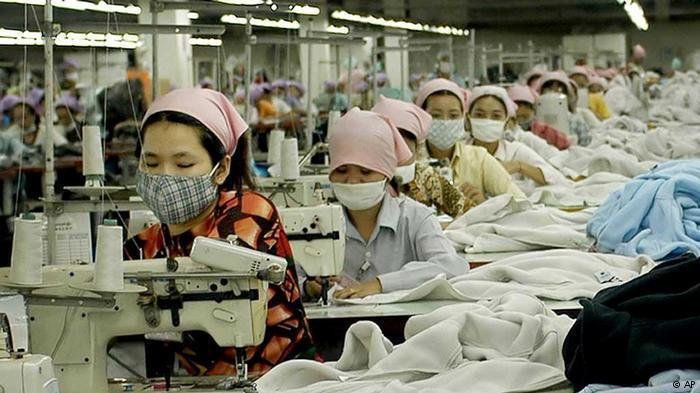
The fashion industry is known as the most labor dependent industry, as one in every six people works in acquiring raw materials and manufacturing clothing. H&M is the largest producer of clothing in under-developed South Asian and Southeast Asian countries such as India, Bangladesh and Cambodia. Nike has received backlash over its use of sweatshops. Bangladesh – a country known for its cheap labor, is home to four million garment production workers in over 5000 factories, out of which 85% are women. Many of these factories do not have proper working conditions for essential workers. In 2013 a group of garment workers protested in Bangladesh for the poor quality of the building. A horrific tragedy took place in Rana Plaza factory, the building collapsed and killed over 1,000 workers. Not only did these workers have a bad manufactured building, were overworked, and had a low minimum wage. Bangladesh is considered to have the lowest minimum wage from all the countries that export apparel.
The International Labour Organization defines export processing zones as “industrial zones with special incentives set up to attract foreign investors, in which imported materials undergo some degree of processing before being re-exported”. These zones have been used by developing countries to bolster foreign investment, and produce consumer goods that are labour-intensive, like clothing.
Many export processing zones have been criticized for their substandard working conditions, low wages, and suspension of international and domestic labour laws. Women account for 70-90% of the working population in some export processing zones, such as in Sri Lanka, Bangladesh, and the Philippines. Despite their overrepresentation in export processing zone informal sector (informal economy) employment, women are still likely to earn less than men. Mainly, this discrepancy is due to employer's preferring to hire men in technical and managerial positions and women in lower-skilled production work. Moreover, employers tend to prefer hiring women for production jobs because they are seen as more compliant and less likely to join labour unions.
In addition, a report that interviewed Sri Lankan women working in export processing zones found that gender-based violence “emerged as a dominant theme in their narratives”. For example, 38% of women reported seeing or experiencing sexual harassment within their workplace. However, proponents of textile and garment production as a means for economic upgrading in developing countries (global value chain) have pointed out that clothing production work tends to have higher wages than other available jobs, such as agriculture or domestic service work, and therefore provides women with a larger degree of financial autonomy.